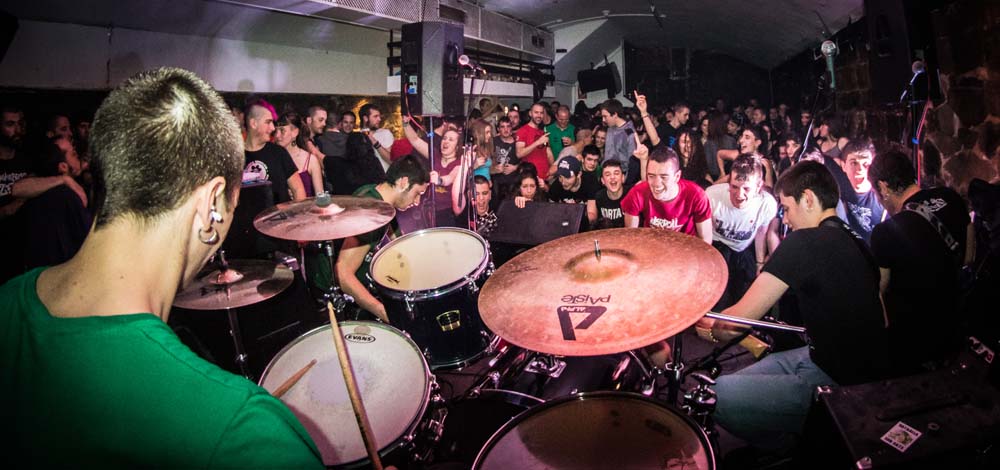We met the young basque punk band Bake Faltsua (BKF) during a trip into the mountains of Ordizia for a concert. Can you imagine the surprise of entering into a Gaztetxe full of 200 punks around 20 years old… Into a city that counts only a thousand of inhabitants. It’s another world, just a few miles away from France! The 5 BKF members represents very well the spirit of this youth, attached to their roots and very open minded. Swearing only by punk rock, friendships, parties and the class war.
| By Polka B. & Nino Futur / Translation: Nino Futur / Photos : Garaifot

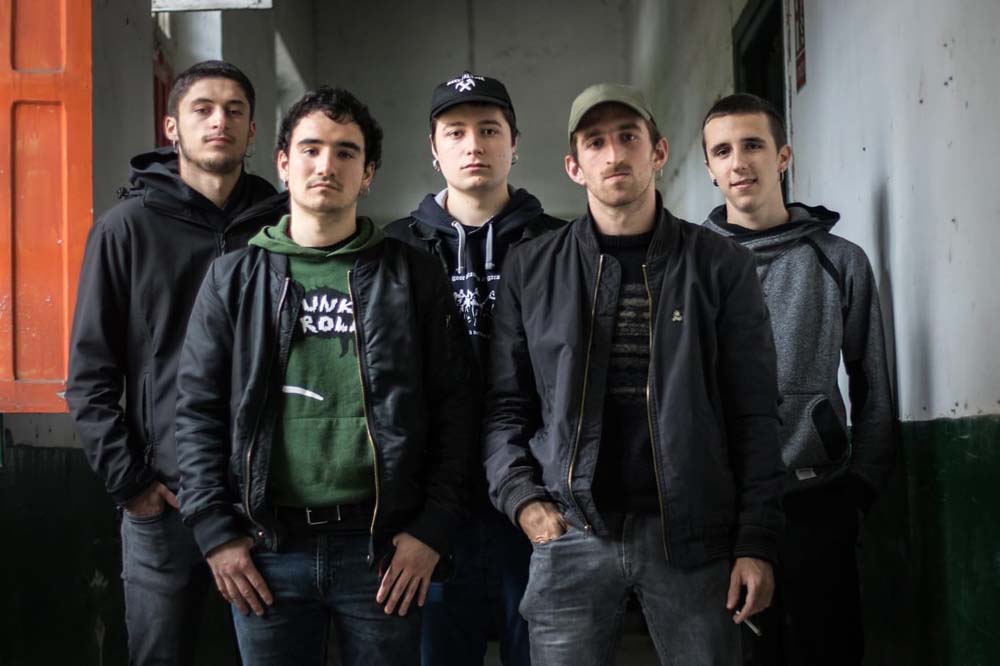
Hello guys ! Can you make a presentation of your band ?
Bake Faltsua is a band from Ordizia, Basque Country. It’s composed by Marx (25 – guitar), Maik (22 – guitar), Zebo (22 – bass), Gorki (21-drums) and Mattin (26-vocal), also Arri (photography) and Eguzki (Sound technic) who helped us many times. Our music is made for struggle. We mean that the songs we make deals with our reality in our country. The messages we carry are a way to denounce injustices which subject the working class. All of the songs we made are sang in « euskera » the official Basque Country language. Due to the Spanish and French state oppression, it is also a means to expand class consciousness in our Country.
What does « Bake Faltsua » mean ?
Bake Faltsua means « fake peace » in Euskera. We chose that name because we think it was important to have a name linked to the message of our music. Nowadays, it´s used to speak about equality, coexistence, democracy, peace… while bourgeoisie increases the rates of exploitation of the proletariat.
ay by day, there are more homeless people, people who are needing the minimum to live. Those who try to inform themselves out of the mass medias, can see that the world is crossed by wars in defense of the interests of the ones they are oppressing the whole proletariat of the world.
In our case, the class war is expressed in forms that may not be seen « a priori » as war situations, but as we say, the progressive oppression of the political liberty, the growing up of racists messages and organizations, the impunity of the police brutality… are the offensive attacks of the bourgeoisie which is reorganizing a new cycle of capital accumulation.
You live in Ordizia, far from the big cities of the Basque country. How can you describe the life of a young punk in this region? What are the particularities of this region of Guipuzcoa?
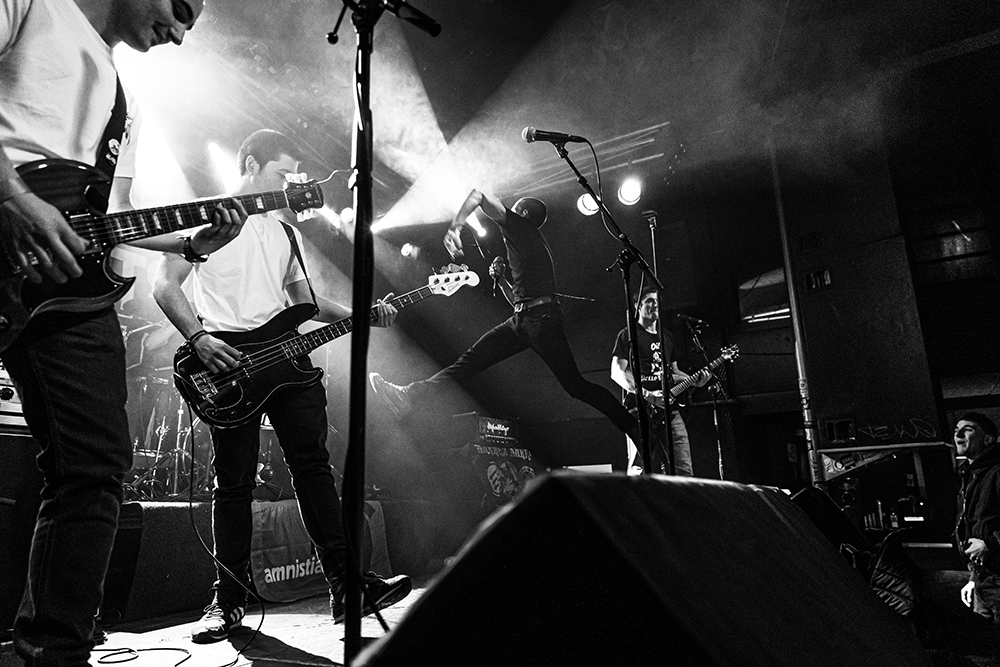
Our region is very industrial, with many multinational factories and smaller ones that work for them, but also it’s a rural territory with an important farming culture. Geographically it’s in the heart of the basque country, a lot of Spanish immigrants have come in the past due to the need of work and nowadays we are in the same context but the inmigration is on an international scale.
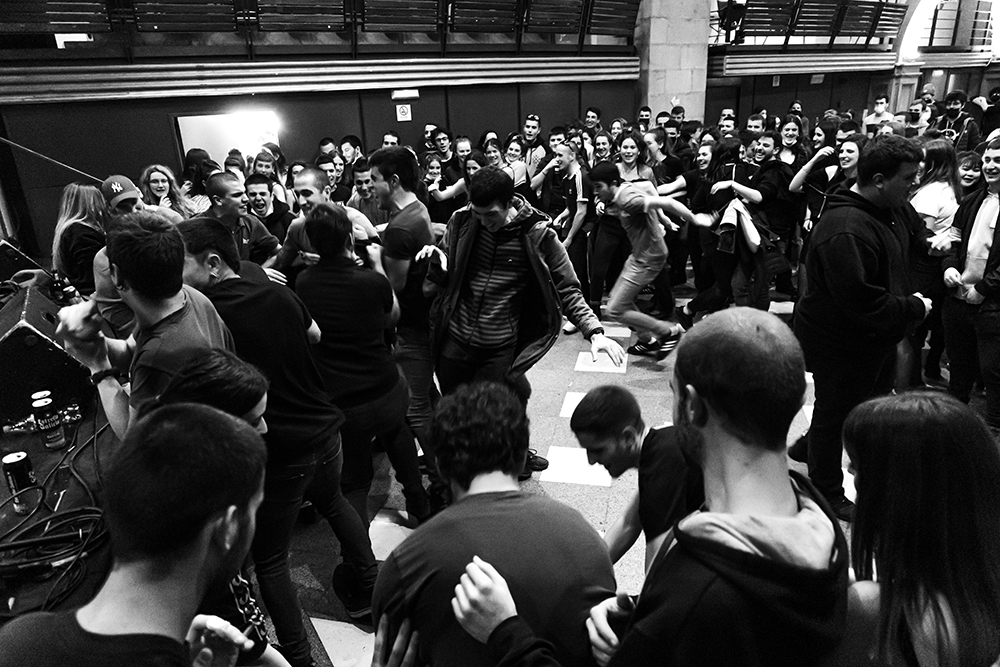
For a young punk band, it’s a great region, there are eight Gaztetxes for concerts.
However, it’s common that young bands have more difficulties to find shows.
In many towns we have music locals given by the town hall. But only because in the past young people fought for it!
In the past in our region there were many well known bands like Dune Buggy, Potrotaino, Hell Beer Boys, The Last Strength, Brigada Criminal, Fiachras… so many important reference’s to us. Now, bands like Aurrez Aurre, Azken Sustraiak, Rudeska, Billy Club, John Dealer and the coconuts… are one of the most active bands from our region. Cheers for them!!
One of the first time we went to a Gaztetxe, it was in Ordizia. We were impressed by the youth of its activists, and the dynamism that reigned there… With crowded out concerts, far from the big cities. How was the Gaztetxe culure born? these spaces self-managed by young people? Whats the story of these spaces in Euskadi ?
The first “Gaztetxe”s where occupied on the 80’s. At this time, the political situation of Euskal Herria was so hard, prosperous for different political struggles. The “end” of the fascist dictatorship in Spain, carried a capitalist government. The 70s were hard because the crisis of petroleum and the situation of the young workers in the Basque Country extreme.
In this situations, many youths of different towns, start occupying abandoned buildings. At first sight there were autonomous spaces to organize different leisures for the workers (generally for the young ones).
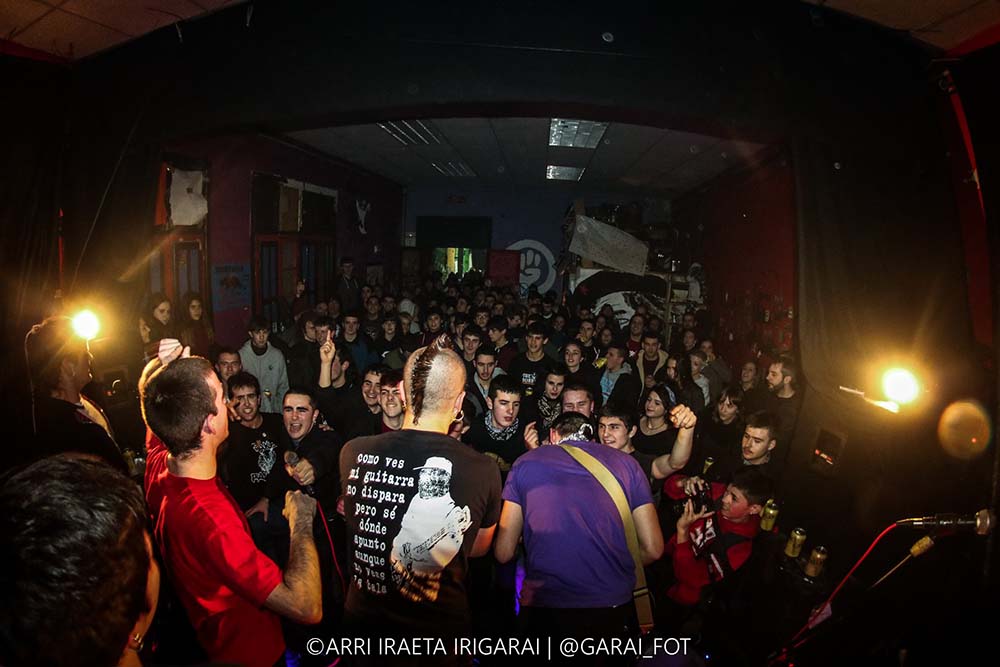
Due to the struggle Euskal Herria lives against the Spanish and French state, there were a lot of organizations that fight the Spanish state repression and grow different projects to defend the interests of the Euskal Herria and basque workers. By the time, most of the Gaztetxes were involved in different ways in that struggle, creating connections between them, using it for political organization…
owadays, the Socialist Movement (Mugimendu Sozialista) as we are part of it, is trying to organize those spaces under the control of the workers to create tactics and strategies to defend it (ERRAKI). We think It’s important to say that nowadays both the Basque, Spanish and French bourgeoisie are trying to evict all that spaces. We think that in other countries the situation can be the same, we make a call to organize the defense of those spaces.
How many Gaztetxe are there in Euskadi? Are there different kinds of gaztetxe? Is there an age limit to be able to participate?
We don’t know the exact number of gaztetxes in Euskal Herria, might be more than 100 spaces of them. Today , the Gaztetxes in general are spaces for a political organization for the young people, but we can see that as the problems are growing up for the workers, the Gaztetxes are one, if not the best, spaces to struggle. There are no age limit to participate there, but it’s true that nowadays most of the participants are young people (15-30 more or less).
Why is the punk tradition so massive and widespread in Euskadi? And why is it so rooted in far-left political ideas ?
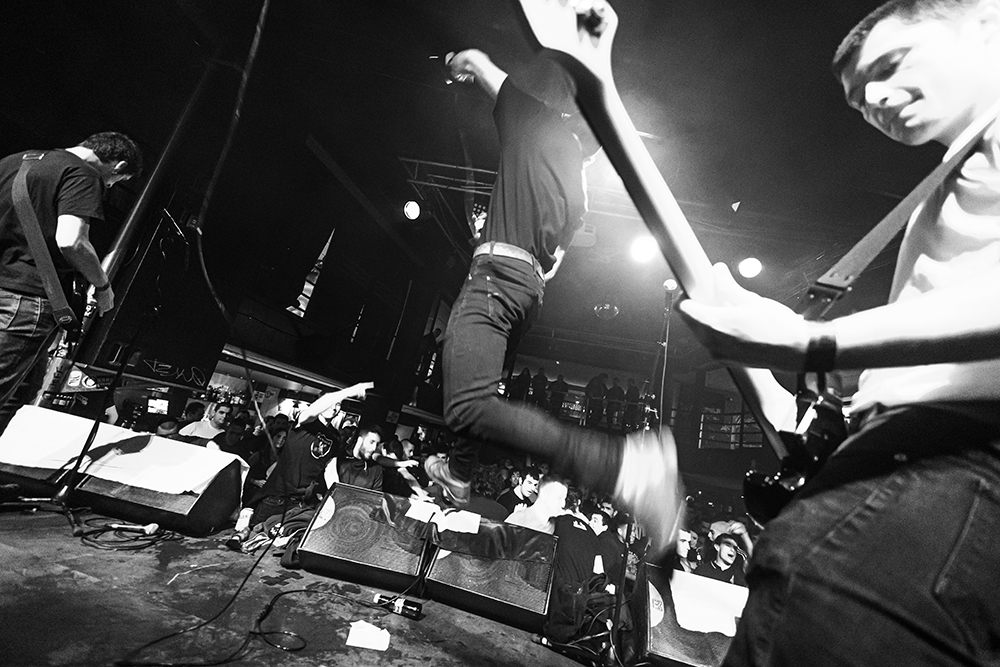
We think its important to explain the 70’s-80’s context of the basque country. Basque Country it`s a territory and that had need to fight for centuries to resist the French and Spanish attacks. The basque language and culture have been attacked for years. In France we can speak about Bretons and Corses in the same way.
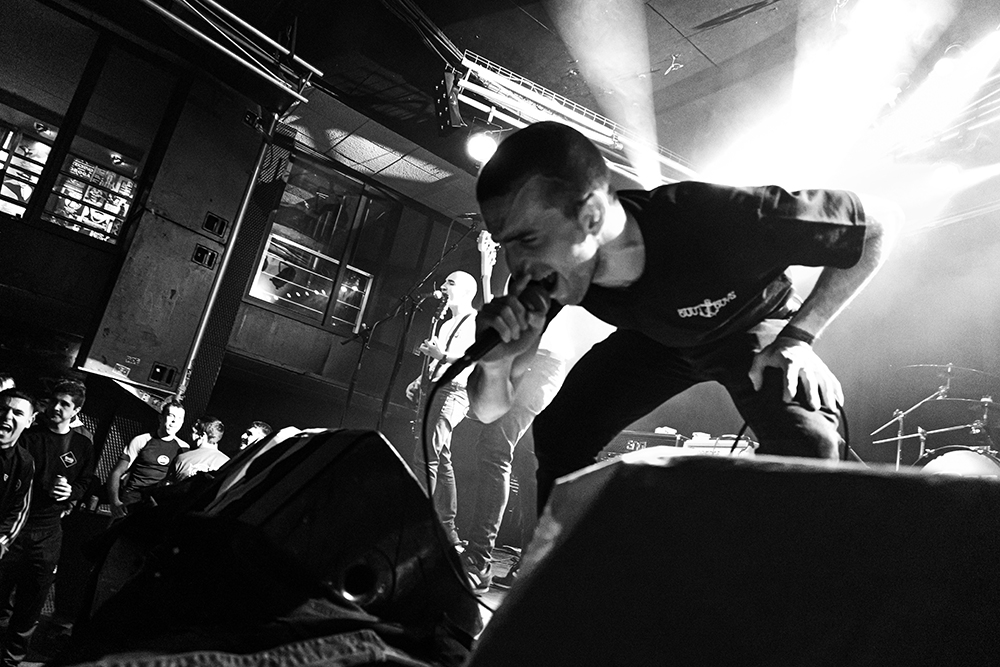
Because of this resistance, the national identity survived and in the 80’s when punk music was growing up, in the Basque Country the youth started using it to give voice to their struggles. On the 60’s some basque musician already started to use the music to speak about the basque country, our language, and our struggles (Ez dok hamairu, Errobi…), and the young punks went the same.
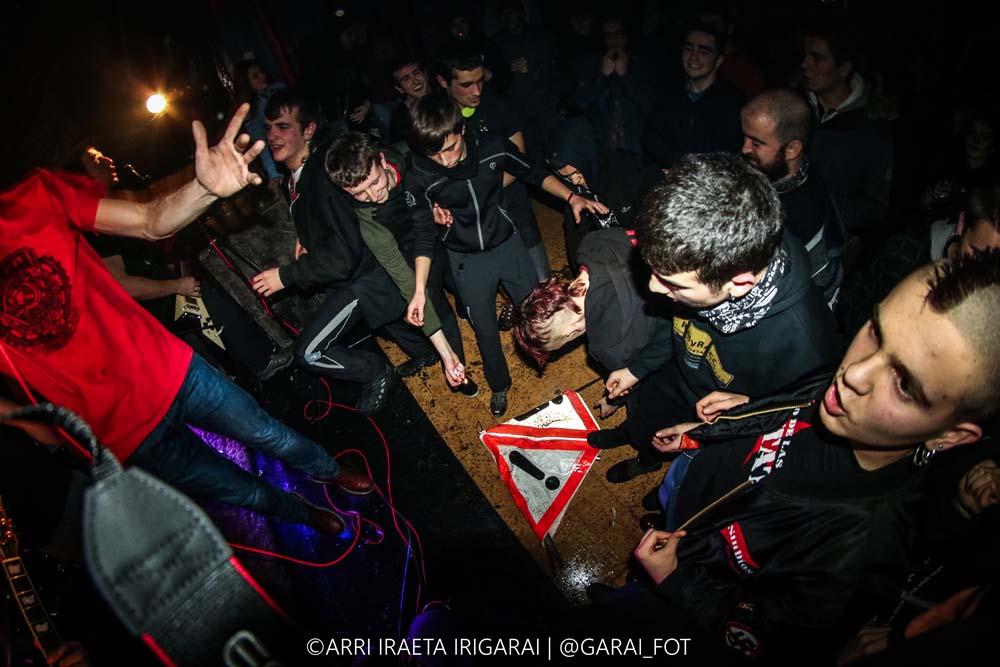
For those who don’t know this scene, can you present some legendary bands in Euskadi? The evolution of the scene and certain claims related to politics over the years?
Some bands that should be known are Kortatu, Negu Gorriak, Eskorbuto, Itoiz, Delirium Tremens, Cicatriz, La polla records, Hertzainak… all of them are bands that started to play in the 80’s. We think it’s impressive to see how many bands appeared in a so small territory, it’s impossible to understand this without knowing their political influence and the context in which they were born into. Never Surrender, Oliba Gorriak, Kloratita, Brigada Criminal, Orreaga 778… or some of the bands that have influenced our music, by their messages and music style.
About the evolution of the scene, we can say that it’s similar to the hegemonic left movement in the Basque Country. The dualism of nationalism and anticapitalism was approached with a interclasist strategy.
As a young band, how do you fit into this big story? What are your political ideas? What’s the heritage you feel close to?
We think we are in the same militant vibe as the ones who had taken the decision to play music as a way to fight. We are militants of the Socialist Movement, we fight for a world without social classes and oppression and we think that the only way to reach it is communism.
Depoliticization , individualism, lack of mobilizing culture against injustice can be felt nowadays… So the study of revolutionary theory, getting it back into Marxism and experience learning is the good way to ongoing in the class war.
The heritage we feel close to are all the workers that have been fighting around the world, we must learn from their experience and their mistakes. We know that the historical project of socialism have been defeated in the past century, but here we are keep on fighting.

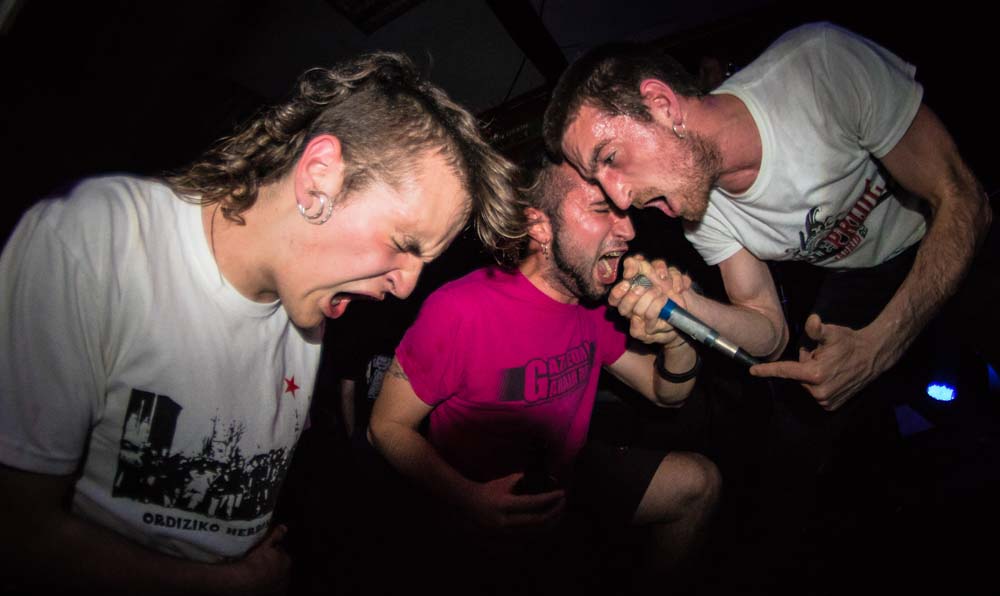
With Bake Faltsua, what are your goals as a band?
The principal goal is to expand our message as much as we can. It’s important for us to feel good and to have fun when we play.
We also play to meet people like you, the people of Krav Boca and Karton Zine, people who want to expand their goals, singing and being referents to fight against capitalism. Would be great to create relations with other music groups that have similar goals, to help each other, to learn with them…
The Basque scene is very close-knit, very active, with a lot of people at the concerts. However, is it important for you to play abroad? Do you have contacts outside Euskadi?
Sure it’s important. We are thinking about going outside the Basque Country, as we say one of our goals it`s to expand our message. We also think that we have so much to learn from people outside. We have contacts in Spain, Catalunya, Galizia, France, Italy… we didn’t went so far because we’re studying and working, militating… but we think if we take time to organize it, we’ll make it .
Do you think that the identity of Basque punk can be exported abroad? Which regions/countries do you feel close to?
Yes, it’s possible. We know a lot of groups that have been playing concerts out from the Basque Country, like in Berlin, Hamburg, Switzerland , France… We are not connected to a specific region, we are connected to a way of struggle. the class war.


What are your goals for the future?
We are working on new songs. The only CD we have released was already years ago, and we think it’s important to make new songs as time is changing.
We want to work on new stuff like videoclips, clothes, photography… Know new places, go away from Euskal Herria… all of this without pressure, but we know that being young is easier to do these things,who knows if we’ll be able to do this in the future, so now is the time.

